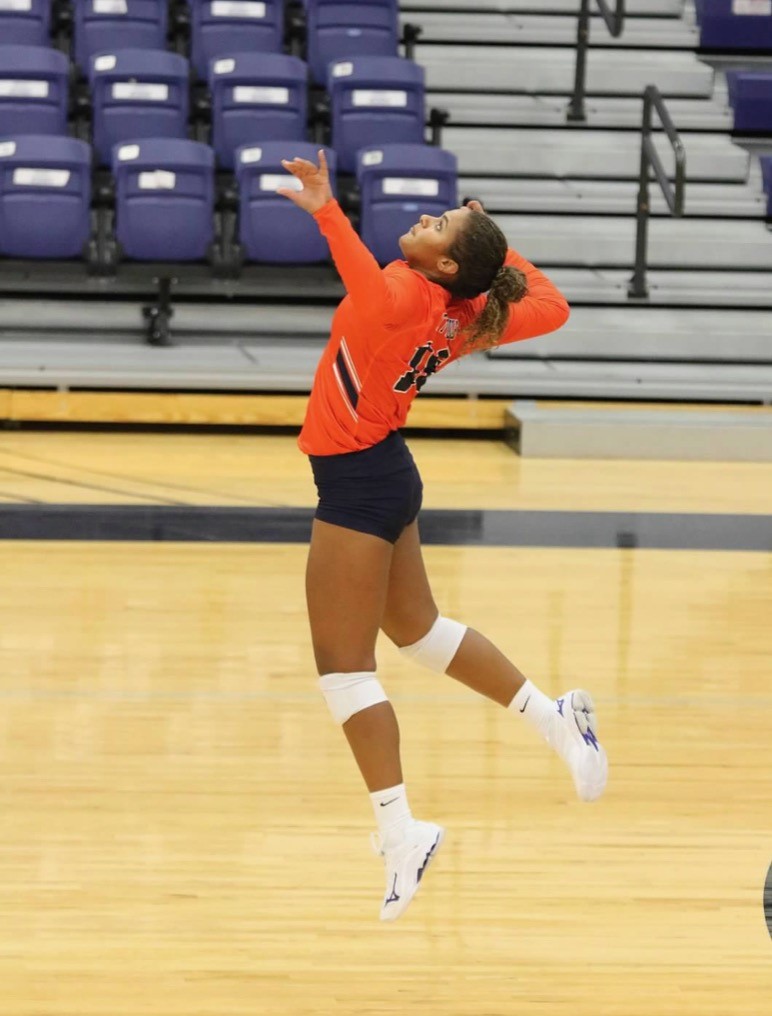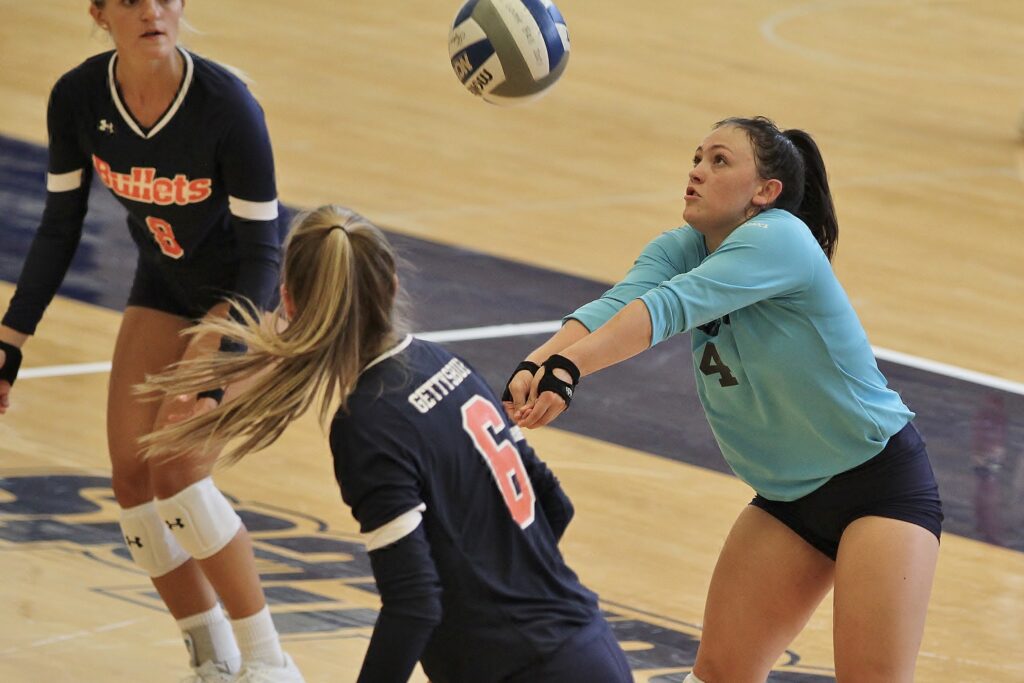Volleyball Captains Spotlight: Group Style Leadership
By Charlie Miller, Staff Writer

Photo courtesy of Kylie Ulrich ’24
Following a tough but valiant effort at the end of last season in the Centennial Conference tournament, the Bullets volleyball team started off the season strong, sprinting to an impressive 13-3 mark on the year thus far.
Last season, the Bullets finished 15-9, pushing perennial juggernaut Johns Hopkins to the brink but eventually falling to the holder of Division III’s longest win streak in history. Regardless, Gettysburg has followed up the 2021 campaign hot and with their eyes on the playoffs, much on the back of veteran leadership.
Head Coach Leah Bernier has implemented a bit of a different leadership style, as team captains have not existed in the program for around six years. Her new style places all juniors and seniors in leadership groups, which she believes “allows the players to step up in whatever way they lead best.”
Three of the prominent leaders on the team are Chelsea O’Leary ’24, Kylie Ulrich ’24, and Zanze Kuba-McCoy ’23 (nicknamed “Z”). Ulrich is a Health Sciences major and Neuroscience minor from Lancaster, PA. O’Leary is an English and Health Science double major from Mechanicsburg, PA. Kuba-McCoy is a psychology major hailing from Somerset, NJ.
Defensive specialist Ulrich elaborated on her belief in the importance of leadership in volleyball, and how the leadership groups allow the team to develop chemistry. She emphasized the significance of “knowing what type of feedback other people respond to best, otherwise we can start to panic.” Volleyball is a very momentum-driven sport, as energy can build up and allow teams to gain mental edges over the opponent, so it is key to have leaders that can push through and stay calm.
Kuba-McCoy expanded on the idea of different leadership styles by noting how she “leads by example” on the court rather than through verbal instruction. This allows underclassmen players to observe certain leadership behaviors on the court, eventually learning to mimic them. Kuba-McCoy’s conduct on the court is a model for how younger players should respond to adversity and charge forward.
Chemistry between team members and leadership in volleyball is also extremely important because of the constant movement and possession of the ball. Everyone on the floor must be on their game.
Ulrich said, “we fully have to rely on each other to win.” Even when players may start to panic after losing a few points, the team can come together after every point to discuss strategy and encouragement. This allows leaders to step up and make a difference on the court. Kuba also noted that it is important to lighten the mood once in a while to allow the team to relax. She identified Michaela Ryan ’25 and Cat Holtz ’25 as two of her teammates who are best at calming the rest of the players with a joke.
O’Leary attributed her leadership development to recently graduated setter Sarah Ellis ‘22, who “maintained her composure on and off the court.”

Photo courtesy of Chelsea O’Leary ’24
This is key, as both Ulrich and O’Leary expressed how the close bonds they forged on and off the court for the team extend to attacking life outside of the sport. They both very much enjoy and work well with the group leadership style because it allows underclassmen and upperclassmen to gravitate toward the system that helps them most.
Ulrich mentioned how the group leadership style allows underclassmen to look to upperclassmen leaders for guidance, “whether it be through words or actions.” O’Leary brought up that it also allows underclassmen to learn how to be leaders when they become upperclassmen.
Ulrich learned to “work together to make decisions and guide the team” through previous upperclassmen. This cycle allows new leaders to emerge year by year.
Gettysburg volleyball has enjoyed success recently, and O’Leary expressed how she enjoys being a part of a competitive team where she has fun and meets lifelong friends.
While balancing academics and athletics may be difficult, Ulrich and O’Leary will not give up the eternal bonds shared by the team. These bonds allow the players to get their work done on and off the court, and support each other through thick and thin.
